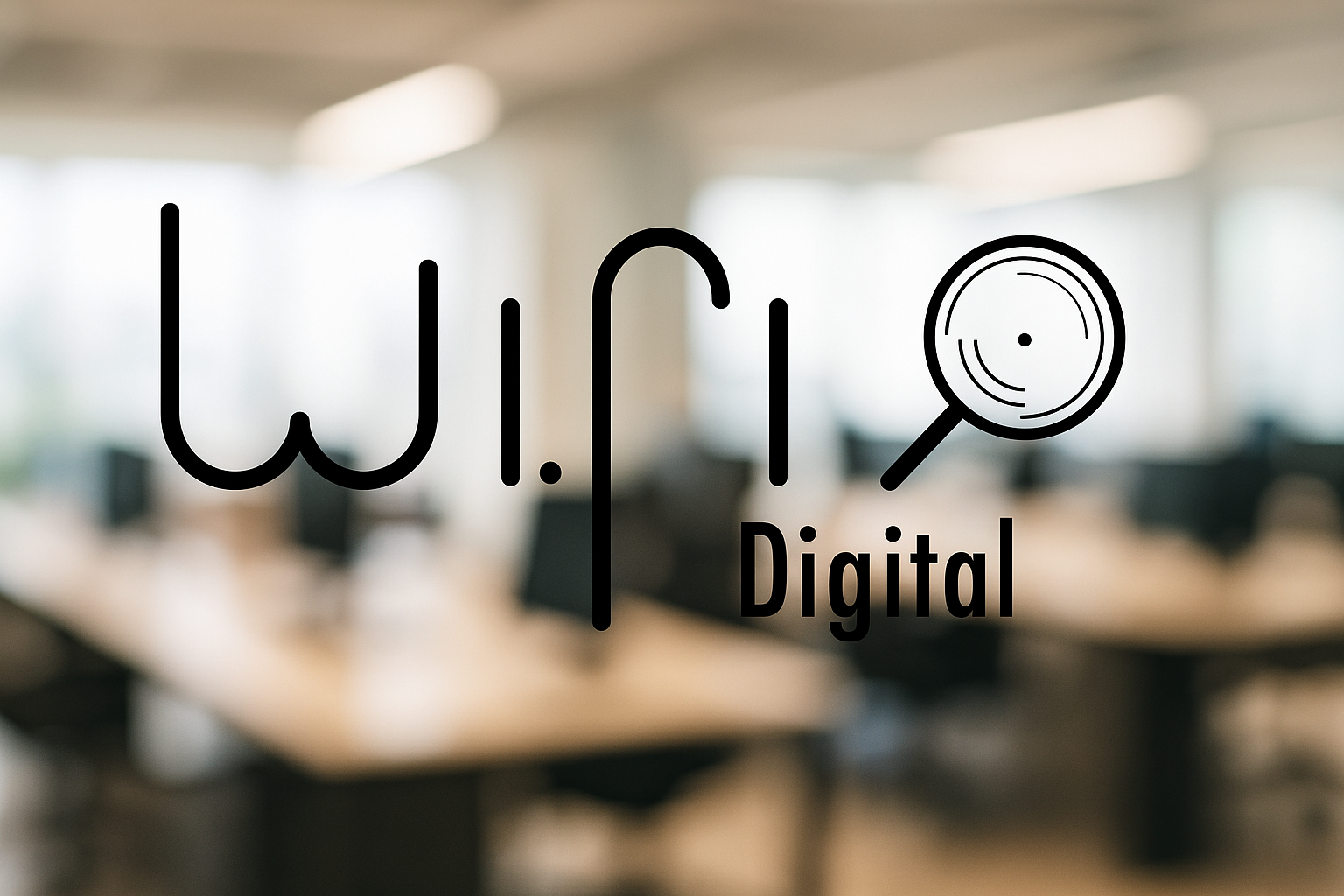In today’s interconnected world, businesses need to transcend geographical boundaries to reach a global audience. Multilingual websites play a crucial role in this endeavor, enabling companies to communicate effectively with customers across different cultures and languages.
At WiFi Digital, we understand the importance of website globalization in facilitating cross-cultural communication. Our expertise in designing and developing websites that cater to diverse linguistic and cultural needs helps businesses build trust with their global audience, driving growth and expansion.
The Global Impact of Multilingual Websites in Today’s Digital Landscape
As the world becomes increasingly digital, the importance of multilingual websites in capturing a broader audience cannot be overstated.
Multilingual websites play a crucial role in enhancing a company’s global reach. By catering to an international audience in their native languages, businesses can significantly improve their brand’s accessibility and appeal.
Conversion Rate Improvements
One of the key benefits of multilingual websites is their ability to improve conversion rates. When customers can navigate a website in their native language, they are more likely to engage with the content and ultimately make a purchase.
- Enhanced user experience due to language familiarity
- Better understanding of product or service offerings
- Increased trust in the brand
Studies have shown that multilingual websites can lead to substantial improvements in conversion rates, often seeing increases of 20-30% or more when compared to monolingual sites.
User Engagement Metrics
In addition to conversion rate improvements, multilingual websites also positively impact user engagement metrics. When users can interact with a website in their native language, they tend to spend more time on the site and explore more pages.
- Longer session durations
- Lower bounce rates
- Increased pages per session
By leveraging multilingual SEO strategies, businesses can further enhance their website’s visibility in search engine results, driving more organic traffic to their site.
Understanding the Core Benefits of Multilingual Websites
The importance of multilingual websites cannot be overstated, as they enable companies to transcend language barriers and reach a broader customer base. A well-planned multilingual content strategy is crucial for businesses aiming to establish a strong global presence.
One of the primary benefits of multilingual websites is the ability to connect with a diverse audience through website localization. This involves adapting your website’s content, design, and functionality to meet the linguistic and cultural preferences of your target audience. By doing so, businesses can foster trust and build stronger relationships with their customers.
Language translation services play a vital role in this process, enabling companies to communicate effectively with their target audience. High-quality translation services ensure that your website’s content is accurately conveyed, maintaining its original intent and meaning.
Key Advantages of Multilingual Websites
- Enhanced global visibility and reach
- Improved customer engagement through localized content
- Increased conversions and sales
- Better brand reputation and credibility
- Competitive edge in the global market
By leveraging website localization and language translation services, businesses can reap these benefits and drive growth. A successful multilingual content strategy requires careful planning, execution, and ongoing maintenance to ensure that your website remains relevant and effective in diverse markets.
Key Components of Effective Multilingual Websites
The success of a multilingual website hinges on its ability to cater to diverse linguistic and cultural needs. To achieve this, several key components must be carefully integrated.
Website Language Options are fundamental to a multilingual website. Providing visitors with the ability to view content in their native language not only enhances their experience but also fosters a deeper connection with your brand. This can be achieved by offering a range of language options that cater to your target audience.
A Language Switcher Plugin is another crucial element. This feature allows users to seamlessly switch between different languages, improving navigation and overall user experience. An effective language switcher should be intuitive, visible, and easily accessible on every page.
Essential Features of Multilingual Websites
- Content Localization: Adapting content to suit cultural nuances and preferences.
- Language-Specific URLs: Using URLs that reflect the language or region.
- Cultural Sensitivity: Ensuring that all elements, including images and symbols, are culturally appropriate.
By incorporating these features, businesses can create multilingual websites that are not only functional but also resonate with a global audience. WiFi Digital specializes in designing and developing such websites, ensuring that they meet the highest standards of usability and cultural relevance.
- Identify your target audience and their language preferences.
- Implement a robust language switcher that is user-friendly.
- Ensure that your content is localized, not just translated.
By following these steps and focusing on the key components outlined above, businesses can significantly enhance their online presence globally.
Technical Considerations for Multilingual Website Development
Technical precision is crucial for the success of multilingual websites in today’s global digital landscape. As businesses expand their reach across different regions and languages, they must consider several technical factors to ensure their website is accessible, user-friendly, and optimized for search engines.
Website Globalization is a critical aspect of multilingual website development. It involves designing and developing a website that can be adapted to various languages and cultural preferences without requiring significant changes to the underlying architecture. This approach enables businesses to expand their global footprint efficiently.
Key Technical Considerations
- Multilingual SEO: Optimizing a website for multiple languages requires a deep understanding of how search engines rank content in different regions. This includes using language-specific keywords, meta tags, and structured data.
- Content Management Systems (CMS): Choosing a CMS that supports multilingual content is vital. The CMS should allow for easy translation and localization of content, as well as the management of different language versions.
- URL Structure: The URL structure of a multilingual website should be carefully planned. Options include using subdomains, subdirectories, or country-code top-level domains (ccTLDs) for different languages.
- Cultural Adaptation: Beyond translation, cultural adaptation is crucial for a website’s success in different markets. This includes adapting images, date and time formats, and currency symbols.
Implementing these technical considerations can be challenging, but it is essential for creating a seamless user experience across different languages and regions. By prioritizing technical precision and adopting a comprehensive approach to multilingual website development, businesses can effectively expand their global reach and build trust with their international audience.
At WiFi Digital, we understand the complexities involved in developing multilingual websites. Our team of experts works closely with businesses to overcome technical challenges and create websites that are not only visually appealing but also technically robust and optimized for global audiences.
Localization vs. Translation: Understanding the Difference
While often used interchangeably, localization and translation serve distinct purposes in the context of multilingual websites, impacting how businesses connect with global audiences. Understanding the difference between these two concepts is crucial for effective cross-cultural communication.
Translation primarily involves converting text from one language to another, ensuring that the message is conveyed in the target language. However, it doesn’t account for cultural nuances, local preferences, or regional differences that are vital for a truly engaging user experience.
Localization, on the other hand, encompasses a broader set of adaptations to make a website resonate with a local audience. This includes not just translation, but also adjusting content, currencies, date formats, and even images to suit local tastes and preferences. Effective localization requires a deep understanding of the target culture and market.
The Importance of Language Translation Services
Language translation services are a critical component of both translation and localization processes. These services ensure that the original message is conveyed accurately and appropriately in the target language, facilitating cross-cultural communication.
Businesses like WiFi Digital have seen firsthand how investing in quality language translation services can enhance the user experience, drive engagement, and ultimately, boost conversion rates on multilingual websites.
Website Localization: More Than Just Translation
Website localization goes beyond mere translation by adapting the website’s functionality, content, and overall user experience to meet the expectations of a local audience. This can involve:
- Adapting content to resonate with local cultures and preferences
- Modifying currencies, date formats, and numerical representations
- Ensuring compliance with local laws and regulations
- Using local imagery and references that resonate with the target audience
By investing in comprehensive website localization, businesses can build trust with their global audience, enhance their brand reputation, and drive business growth in diverse markets.
Multilingual SEO Strategies for Enhanced Visibility
The key to unlocking global opportunities lies in understanding and implementing sophisticated multilingual SEO strategies that resonate with diverse linguistic and cultural groups.
To effectively cater to an international audience, businesses must optimize their websites for search engines in multiple languages. This involves more than just translating content; it requires a deep understanding of local search behaviors, preferences, and cultural nuances.
Here are some critical components of effective multilingual SEO strategies:
- Keyword Research: Conduct thorough keyword research for each target language, considering local dialects and search trends.
- Content Localization: Adapt content to fit cultural and linguistic preferences, ensuring it resonates with the target audience.
- Technical Optimization: Ensure the website’s technical infrastructure supports multiple languages, including proper hreflang tags and URL structures.
- Local Link Building: Build high-quality backlinks from local sources to enhance credibility and search engine rankings.
By implementing these strategies, businesses can significantly enhance their online visibility across different regions and languages. WiFi Digital specializes in developing tailored multilingual SEO strategies that drive international growth and help businesses connect with their global audience more effectively.
Design Principles for Trust-Building Multilingual Websites
A well-designed multilingual website is key to fostering cross-cultural communication and building trust with international customers. To achieve this, it’s essential to incorporate design principles that cater to diverse cultural and linguistic needs.
Cultural Sensitivity is paramount. This involves understanding the cultural nuances of your target audience and reflecting this understanding in your website’s design. For instance, colors, imagery, and layout can have different meanings in different cultures.
Some key design elements to consider include:
- Using culturally relevant imagery and graphics
- Avoiding cultural faux pas in color schemes and typography
- Ensuring that your website’s layout is adaptable to different languages and reading directions
Moreover, intuitive navigation is crucial for a positive user experience. This can be achieved by:
- Implementing clear and consistent navigation menus
- Using language selectors that are easily accessible
- Ensuring that your website is accessible on various devices and screen sizes
By incorporating these design principles, businesses can create multilingual websites that not only attract but also retain a global audience, thereby building trust and driving engagement.
Content Strategy for Multilingual Websites
In today’s digital landscape, a multilingual content strategy plays a pivotal role in engaging diverse audiences worldwide. As businesses expand their global reach, the need to communicate effectively across different languages and cultures becomes increasingly important.
A well-crafted multilingual content strategy involves more than just translating content; it requires a deep understanding of the target audience’s cultural nuances, preferences, and behaviors. This approach enables businesses to create content that resonates with their global audience, fostering trust and loyalty.
One of the key components of a successful multilingual content strategy is leveraging language translation services. These services facilitate the creation of high-quality, culturally relevant content that meets the needs of diverse linguistic groups. By partnering with reliable translation services, businesses can ensure that their message is conveyed accurately and effectively across different languages.
Key Considerations for Developing a Multilingual Content Strategy
- Understand your target audience’s cultural and linguistic preferences.
- Develop content that is relevant and engaging for diverse cultural groups.
- Utilize language translation services to ensure accuracy and cultural relevance.
- Optimize your content for search engines in multiple languages.
By adopting a comprehensive multilingual content strategy, businesses can enhance their global online presence, improve customer engagement, and drive conversions. It’s about creating a personalized experience for each linguistic and cultural segment, thereby building a strong foundation for global success.
Tools and Technologies for Managing Multilingual Websites
In today’s globalized digital landscape, leveraging the appropriate tools and technologies is crucial for effective multilingual website management. Managing a multilingual website involves more than just translating content; it requires a robust set of tools to ensure that the user experience is consistent across different languages.
Key Tools for Multilingual Website Management
- Language Switcher Plugins: These plugins allow users to switch between different languages on your website seamlessly. A well-designed language switcher plugin is essential for enhancing user experience.
- Translation Management Systems: These systems help in organizing and managing translations, making it easier to update content across different languages.
- Content Localization Tools: These tools assist in adapting content to different cultural and linguistic preferences, ensuring that your message resonates with the target audience.
When selecting tools and technologies for multilingual website management, it’s essential to consider factors such as ease of use, compatibility with your existing CMS, and the level of support provided by the tool vendors. Website language options should be intuitive, allowing users to easily find and switch between languages.
At WiFi Digital, we specialize in implementing effective solutions for multilingual website management. Our expertise includes integrating language switcher plugins and other necessary tools to ensure that your multilingual website is both user-friendly and search engine optimized.
By leveraging the right tools and technologies, businesses can streamline the management of their multilingual websites, enhance user experience, and ultimately drive global engagement and conversions.
How WiFi Digital Transforms Businesses with Multilingual Websites
WiFi Digital’s innovative approach to multilingual website development is transforming the way businesses connect with their global audience.
Enhancing Global Reach
By creating multilingual websites, WiFi Digital enables businesses to transcend geographical boundaries, reaching a broader customer base.
- Understanding the target audience and their language preferences
- Designing culturally sensitive and engaging website content
- Implementing effective SEO strategies for enhanced visibility
Key Benefits of WiFi Digital’s multilingual website solutions include:
- Increased global brand awareness
- Improved customer engagement through relevant content
- Enhanced competitiveness in diverse markets
Through their expertise, WiFi Digital is driving business transformation by making multilingual websites a cornerstone of their clients’ global strategies.
Embracing Global Opportunities Through Multilingual Websites
In today’s interconnected world, multilingual websites play a vital role in facilitating cross-cultural communication and driving business growth. By embracing global opportunities through multilingual websites, businesses can expand their reach, build trust with diverse audiences, and stay ahead of the competition.
Effective multilingual websites are not just a nicety, but a necessity for businesses aiming to succeed globally. By investing in multilingual websites, companies can tap into new markets, foster global understanding, and reap the benefits of a diverse customer base.
As the digital landscape continues to evolve, the importance of multilingual websites will only continue to grow. By prioritizing cross-cultural communication and global opportunities, businesses can position themselves for long-term success and establish a strong presence in the global market.
WiFi Digital: Connecting Businesses to the Digital Future
In today’s fast-paced world, where a strong digital presence is essential for business growth, WiFi Digital emerges as a strategic partner for small and medium-sized businesses (SMBs). Founded in 2023 and based in London, Ontario, the company has a clear mission: to provide affordable, high-quality solutions that help businesses thrive online. With an experienced and passionate team, WiFi Digital goes beyond simply creating websites and marketing strategies. Its purpose is to empower entrepreneurs, strengthen brands, and give clients more free time to focus on what truly matters – growing their business and improving their quality of life.
WiFi Digital develops websites that authentically and professionally represent your brand, optimizes systems and digital marketing strategies to enhance visibility and return on investment (ROI), and offers affordable, customized solutions, ensuring that businesses of all sizes have access to effective growth tools. With transparency, partnership, and innovation, the company provides each client with the necessary support to achieve real results.
Business digitalization is not just about numbers or metrics. It directly impacts entrepreneurs’ well-being, bringing more organization, efficiency, and freedom to focus on what truly matters. WiFi Digital understands that by investing in digital solutions, businesses gain time, reduce operational stress, and create opportunities to connect better with their customers. A well-structured online presence not only increases sales but also strengthens the public’s trust in the brand.
Beyond technical expertise, WiFi Digital’s key differentiator is its commitment to people. The company values genuine relationships, creates tailored strategies, and works side by side with clients to ensure that every solution meets their specific needs. If you’re looking to boost your brand, attract more customers, and still have more time to focus on what truly matters, now is the time to act!
💡 Transform your digital presence with experts who understand your needs.
📩 Contact us now: contact@wifidigital.ca
🌍 Learn more: www.wifidigital.ca
🚀 Your growth starts here!



